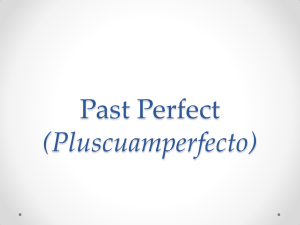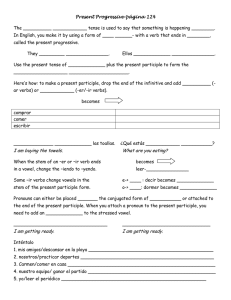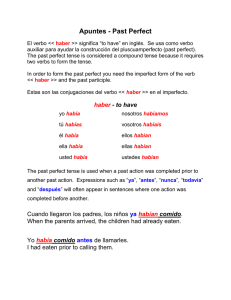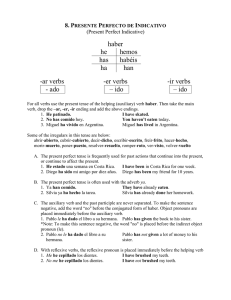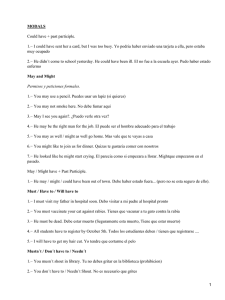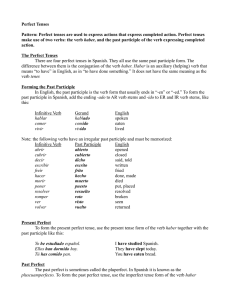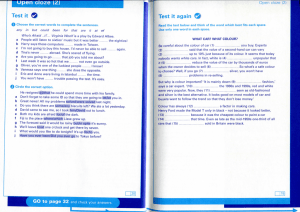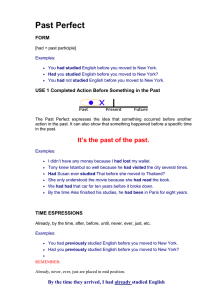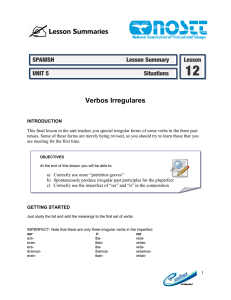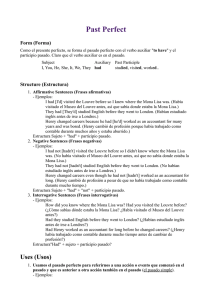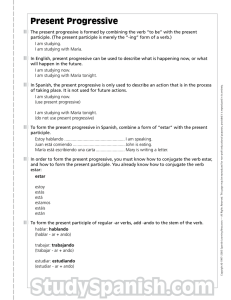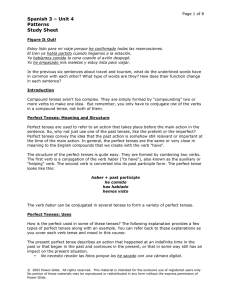PLUSCUAMPERFECTO (PAST PERFECT)
Anuncio
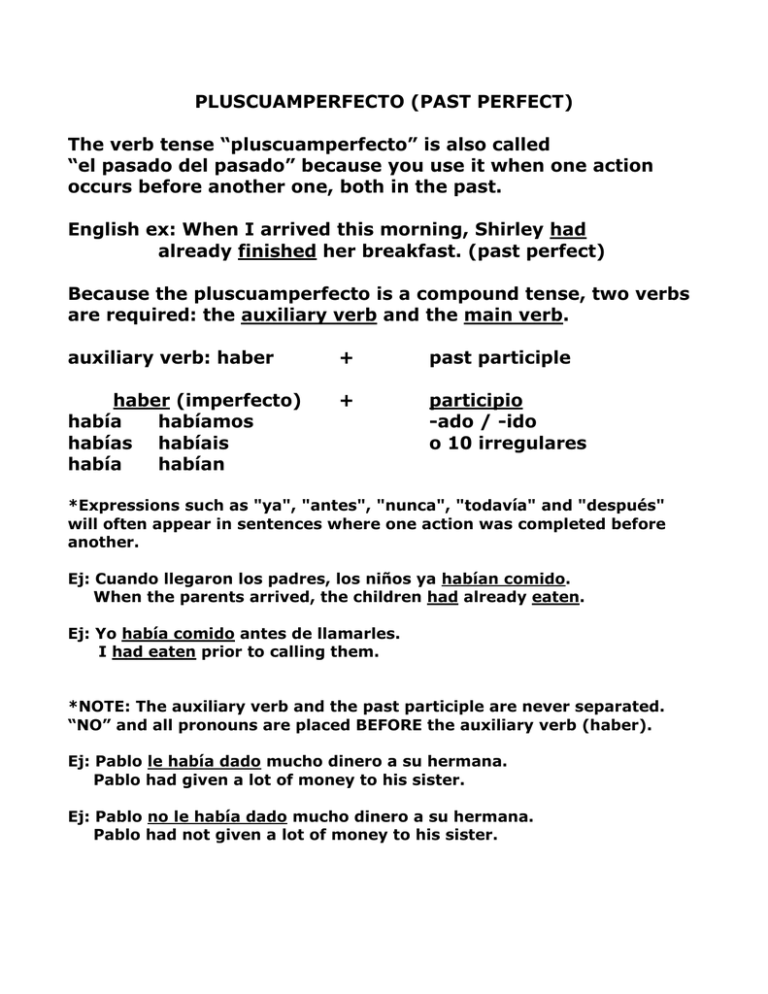
PLUSCUAMPERFECTO (PAST PERFECT) The verb tense “pluscuamperfecto” is also called “el pasado del pasado” because you use it when one action occurs before another one, both in the past. English ex: When I arrived this morning, Shirley had already finished her breakfast. (past perfect) Because the pluscuamperfecto is a compound tense, two verbs are required: the auxiliary verb and the main verb. auxiliary verb: haber + past participle haber (imperfecto) había habíamos habías habíais había habían + participio -ado / -ido o 10 irregulares *Expressions such as "ya", "antes", "nunca", "todavía" and "después" will often appear in sentences where one action was completed before another. Ej: Cuando llegaron los padres, los niños ya habían comido. When the parents arrived, the children had already eaten. Ej: Yo había comido antes de llamarles. I had eaten prior to calling them. *NOTE: The auxiliary verb and the past participle are never separated. “NO” and all pronouns are placed BEFORE the auxiliary verb (haber). Ej: Pablo le había dado mucho dinero a su hermana. Pablo had given a lot of money to his sister. Ej: Pablo no le había dado mucho dinero a su hermana. Pablo had not given a lot of money to his sister. *NOTE: When we first studied the past participle, we practiced using it as an adjective. When used as an adjective, the past participle changes to agree with the noun it modifies. However, when used in the perfect tenses, the past participle never changes. EX: Past participle used as an adjective: La puerta está cerrada. (change ending to match subject) The door is closed. EX: Past participle used in the past perfect tense (verb): Yo había cerrado la puerta. (don’t change ending to match subject) I had closed the door. Práctica: 1. terminar -- to finish: Cuando llegó el supervisor ya los trabajadores _______ _____________ su trabajo. 2. ser -- to be: El padre _______ __________ un buen trabajador. 3. ser -- to be: Los VHS _________ __________ inventados antes de los DVD. 4. leer -- to read: El lector pidió al bibliotecario el título de la novela que su amiga _______ __________. 5. ser -- to be: Juan ________ _________ amigo mío durante los años noventa. 6. ensuciar -- to get dirty: El ama de la casa limpió el piso de la cocina que el niño _________ ____________. 7. ver -- to see: El dueño le contó a su vecino que ________ _________ a una rata en su casa. 8. vender -- to sell: El autor me dijo que no ________ _____________ todas sus novelas. 9. saber -- to know: ¿Ya (tú) _________ ____________ el contenido de este libro antes de leerlo? 10. llegar -- to arrive: Cuando llegué a la universidad mi hermana ya _______ ____________ temprano.
